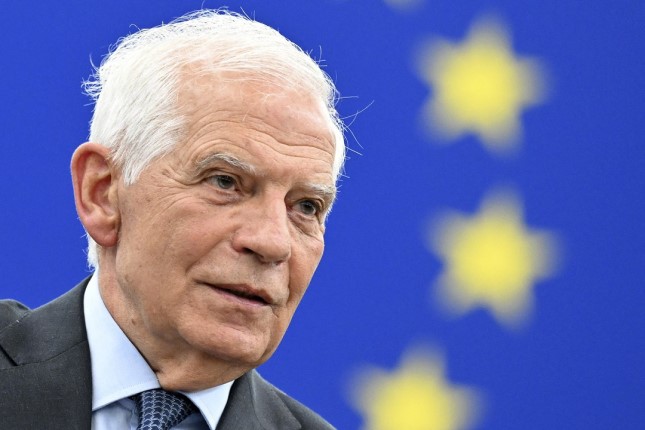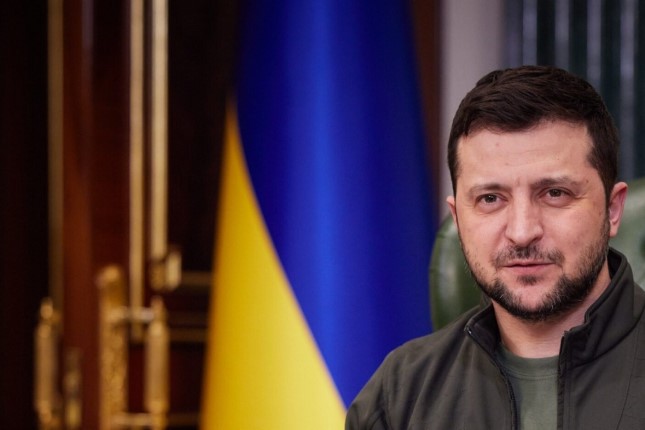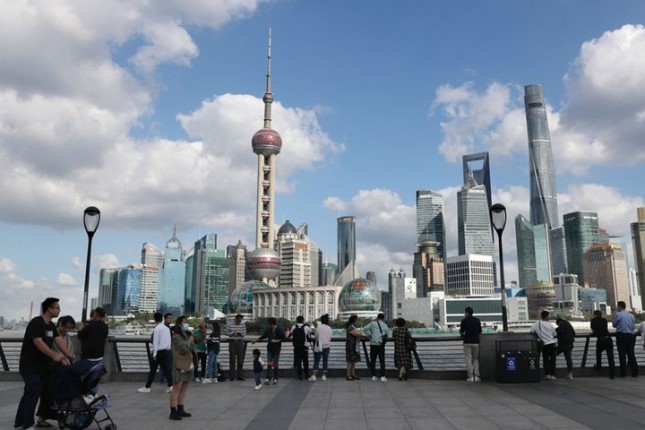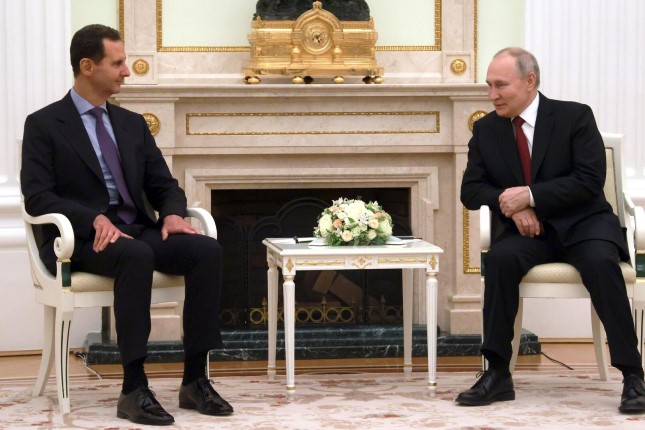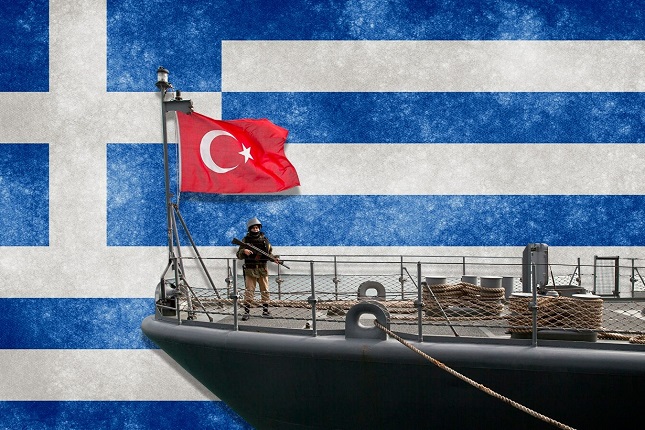The High Representative of the EU for Foreign Affairs and Security Policy Josep Borrell will convene foreign ministers from across EU on April 24 local time to discuss the same topic. In anticipation of this meeting, Borrell published a column on April 22 urging the EU to take a more active role in the Taiwan question and calling for European navies to patrol the Taiwan Straits.
This highly provocative statement immediately attracted a lot of attention, especially in light of the fact that the South Korean leader made similarly incorrect remarks about Taiwan around the same time. We can reasonably assume that the G7 foreign ministers' meeting, held in Japan not long ago, discussed the Taiwan question in a coordinated manner, and the result was that Washington's will was more fully implemented. For Europe and South Korea, this is not only a sad loss of independence, but also means moving closer to meaningless risks.
Borrell has been criticized for engaging in "gunboat diplomacy," which is more of a sarcastic mockery than a criticism. This not only reminds people of the infamous colonial history, which is still missed by some Europeans, but also makes it more repugnant that Europe cannot let go of the idea of interfering in Asia-Pacific affairs despite its absolute decline in power and being mired in multiple difficulties. Just like a senile old man who has long been out of touch with the times, if European warships still want to show off their might in the Pacific today, the result would only be an embarrassing failure. For the People's Liberation Army, which has powerful strength to defend its homeland, facing European warships that come to provoke and show off is not even worth raising an eyebrow. We advise them not to bring shame upon themselves.
Borrell is known as the "foreign minister" of Europe, but the extent of his representativeness is debatable. Most Europeans, especially ordinary people, neither understand nor care about Taiwan. What they are really concerned about is whether their lives can be guaranteed and improved in the context of the prolonged Russia-Ukraine conflict and difficult economic recovery. However, Borrell's article reflects that there is indeed a political force within Europe that always divides ideological boundaries and holds a cold war mentality toward China. Regardless of whether there is a shadow of the US behind Borrell, it's clear this part of the political force is deeply influenced by the US.
What is confusing is that just a week before Borrell made his remarks on Taiwan question, he posted an emotional review on social media on April 13 of his three visits to China. He praised the tremendous achievements made by China since the reform and opening up, and called for further enhancing EU-China public diplomacy and cultural exchanges and working together to solve global issues. Prior to this, Borrell also expressed that the EU would not follow the US in adopting strict economic and trade restriction policies against China.
It gives people the impression that Borrell has a split personality when dealing with China. This kind of contradictory attitude toward China is quite common among European elites. Specifically speaking, it is not complicated. He wants to take advantage of both sides. From the perspective of Europe's own interests, it is unwilling to "decouple" with China and needs to cooperate with China on global issues. It wants to maintain exchanges with China because of the importance of China-EU relations to Europe. On the other hand, European politicians represented by Borrell have been brainwashed by Washington on the Taiwan question without knowing it, and it is difficult to quit the addiction of being human rights and ideology lecturers. Borrell and his likes are self-righteously trying to manage this contradiction and want to achieve a balance, but this is harder than walking a tightrope, and it is a mission impossible.
As the helm of EU diplomacy, Borrell urgently needs to make up his knowledge about the Taiwan question and the one-China principle. His ignorance and arrogance on the Taiwan question are very prominent. Last year he said that the EU could be a "moderator" in crises in the Taiwan Straits. At that time, some Chinese media directly asked him, "Borrell, who do you think you are?" That these European politicians who are full of superiority cannot position themselves in the right place is a common problem. To some extent, this is also one of the psychological causes of the Russia-Ukraine conflict. Now, do Borrell and his likes think that Europe is not deep enough in the Russia-Ukraine conflict? Do they want to travel thousands of miles to the Taiwan Straits to muddy the water? They are really taking Europe into a ditch.
To put it bluntly, Borrell's Taiwan-related remarks are a very classic and hypocritical political performance, reflecting his ignorance of the Taiwan question and "brainless following" of Washington. Europe has no reason to support itself to intensify conflicts with China at the moment. A wrong choice by anyone, including Europe, on the Taiwan question is enough to destroy all positive factors in other areas, not only out of balance but also out of control. Regarding this point, Borrell should weigh it carefully.
Photo: European Union foreign policy chief Josep Borrell speaks during a debate on the need for a coherent strategy for EU-China relations, as part of a plenary session at the European Parliament in Strasbourg, eastern France, on April 18, 2023 © AFP.
Source: The Global Times.
